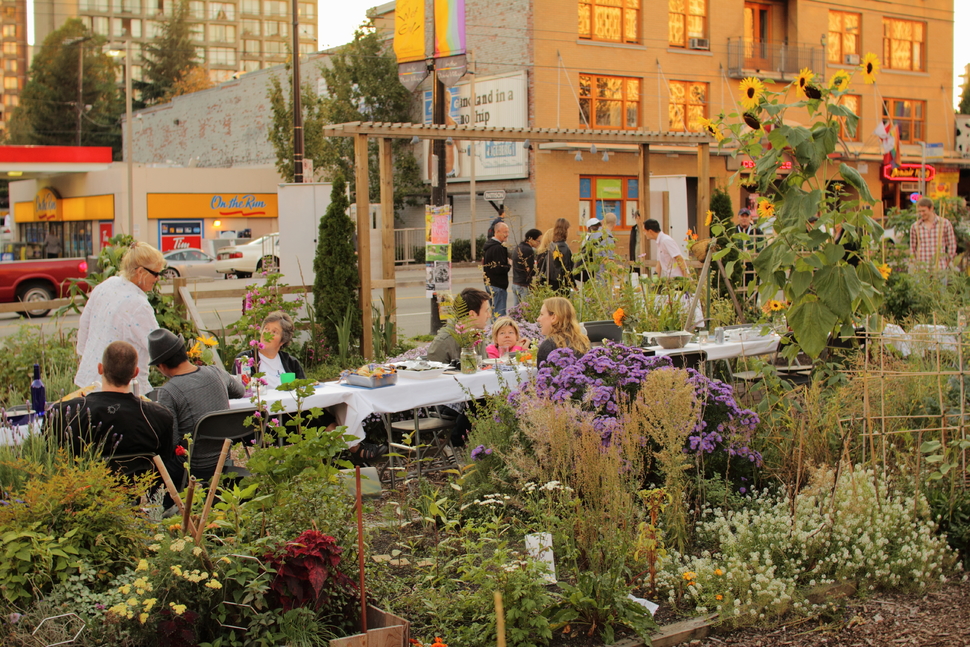Last month, the second edition of the so-called ‘ECF Idea Camp’ took place in Botkyrka, Sweden. The Idea Camp contained workshops, idea sharing and debate to help the selected participants developing their ideas with as goal to find ways to create so called ‘commons’, public areas which are beneficial the community as a whole. It consisted of a three-day collaborative working platform, organized within the framework of Connected Action for the Commons, a network and action research program led by cultural organizations from across Europe. While this camp is quite new, the concept of commons is much older. The question remains: Are these rather utopic initiatives strong enough to fit into nowadays’ society? 1
At Idea Camp, a lot of different opinions and ideas come together. Camp participant and R&D grantee Matthew Fox asserts that “The Idea Camp is a miniature ‘pop-up city’ in itself, facilitating face-to-face interactions and enabling the speedy sharing of ideas and contacts. All the ideas came out of the Idea Camp stronger than when they went in, and we were able to help each other.” Some participants even see themselves as the ‘commons movement’, a whole new generation spreading ideas on finding ways to use public grounds in a way that is beneficial to the whole community. Others, such as British activist Dougald Hine, say to be inspired by history. Before ‘the enclosure of the commons’, the containment of the public grounds by the more powerful, local communities considered the heath and forests as common grounds where they could graze their cattle, collect wood and pick fruit. Hine is making a valid point here.2
According to Lieven De Cauter, a Belgian philosopher and activist, these thoughts on the enclosure of the commons and the utopian ideas that they ensue, make ‘Utopia’, the book written by English humanist Thomas More in 1553, still very topical. More’s disaffection with society back then, as explained in his second book, makes clear that the problem has already been there for a very long time. However, according to De Cauter, we should not focus on the utopian dream that More expressed in his second book. What should result from the current disaffection, are realistic solutions in the form of value driven designs. These solutions can come in the form of commons.3
Examples of this already exist. French philosopher Loïc Fel, has created a small common in a popular part of Paris. Back then, the place was being occupied by Afghan refugees. The former residents of the neighborhood brought them together and filled the common with trees, providing fruit for anyone. The surprising result is that that this idea worked out unbelievably well and that this part of Paris now has the highest biodiversity around. Another initiative worth mentioning is Parckfarm4, in the City of Brussels. In this common, neighborhood residents of all sorts of backgrounds cultivate, harvest and eat vegetables together.
Concluded can be, that doing basic human activities is a great way of dealing with cultural diversity. Furthermore, existing commons prove that when values will be taken more into account during the design of a neighborhood, then safety, sustainability and human well-being can go hand in hand perfectly.
---
Sources:
[1] European Cultural Foundation – ECF Idea Camp: http://www.culturalfoundation.eu/idea-camp/
[2] De stad is van ons! Hoe jonge ideeënmakers de gemeenschap willen herontdekken: https://decorrespondent.nl/3437/De-stad-is-van-ons-Hoe-jonge-ideeenmakers-de-gemeenschap-willen-herontdekken/315204747242-5f526275
[3] Samen tuinieren, koken, eten en lachen, dát is de ultieme utopie: https://decorrespondent.nl/2909/Samen-tuinieren-koken-eten-en-lachen-dat-is-de-ultieme-utopie/134203806-f4905b89
[4] Parckfarm’s website (in French): http://www.parckfarm.tk/
